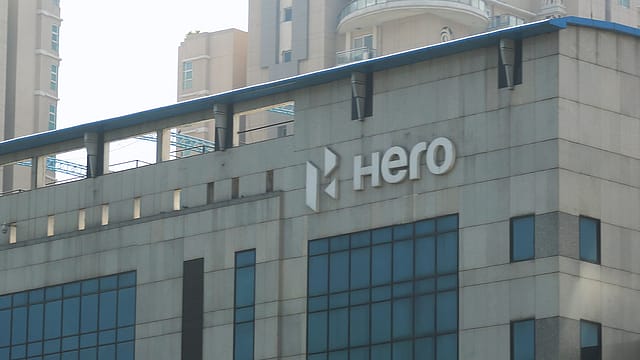Hero MotoCorp launches VRS for all staff members
ADVERTISEMENT

Hero MotoCorp, the world's largest manufacturer of motorcycles and scooters, on Wednesday launched a voluntary retirement scheme (VRS) for its staff.
The move is in line with the objective of building a "robust" organisation in a rapidly evolving dynamic environment while retaining employee welfare at its core, the two-wheeler maker says in a statement.
Hero MotoCorp says the VRS has been designed with an aim to make the company "agile" and "future-ready" by consolidating roles and reducing layers to increase empowerment and agility.
"We expect this to improve efficiency within the company through a lean and more productive organization," the statement says.
The scheme is applicable to all staff members. "The VRS offers a generous package that includes – among other benefits - a one-time lump-sum amount, variable pay, gifts, medical coverage, retention of company car, relocation assistance, career support etc," the two-wheeler maker says.
"The general consumer sentiment is improving, as reflected in the sales performance in the month of March. The constructive policies of the government and the social sector reforms have given a further boost to the demand scenario and the two-wheeler industry expects these factors to contribute towards a double-digit growth in this financial year," it adds.
The announcement comes days after Hero MotoCorp elevated Niranjan Gupta as its chief executive officer. Pawan Munjal, chairman of Hero MotoCorp, will continue as executive chairman and a whole-time director of the board. "Niranjan's sharp focus has helped Hero MotoCorp in delivering strong cash flow over the years, while ensuring judicious capital allocation," Munjal said. Gupta has played a significant role in forging key partnerships with global brands such as Harley Davidson and Zero Motorcycles.
The two-wheeler manufacturer has hiked prices of some motorcycles and scooters by around 2% in April. The decision has been necessitated mainly due to cost increases on account of the "OBD 2 transition", it said.
The company had earlier hiked prices of motorcycles by up to ₹1,500 in December. It cited overall inflationary costs as the reason for increasing vehicle prices. In July and September last year, the company raised prices by up to ₹3,000 and ₹1,000, respectively, owing to a rise in input costs.
Hero MotoCorp's revenue for the third quarter stood at ₹8,031 crore while the EBITDA margin was 11.5%. Profit for the quarter came in at ₹721 crore.
The company forayed into the electric scooter segment last year with the launch of the Vida brand.
Meanwhile, the Federation of Automobile Dealers Associations of India (FADA) has cautioned that two-wheeler sales remain significantly below pre-pandemic levels, indicating that rural India is still bearing the burden of high inflationary costs.
The two-wheeler category witnessed a growth of 12% year-on-year but was down by 9% from its pre-Covid levels, the auto dealers' lobby said. This comes at a time when US government agencies have warned of the possibility of El Niño's arrival later this year, which could lead to poor monsoons, hampering rural India's growth potential, warned FADA.